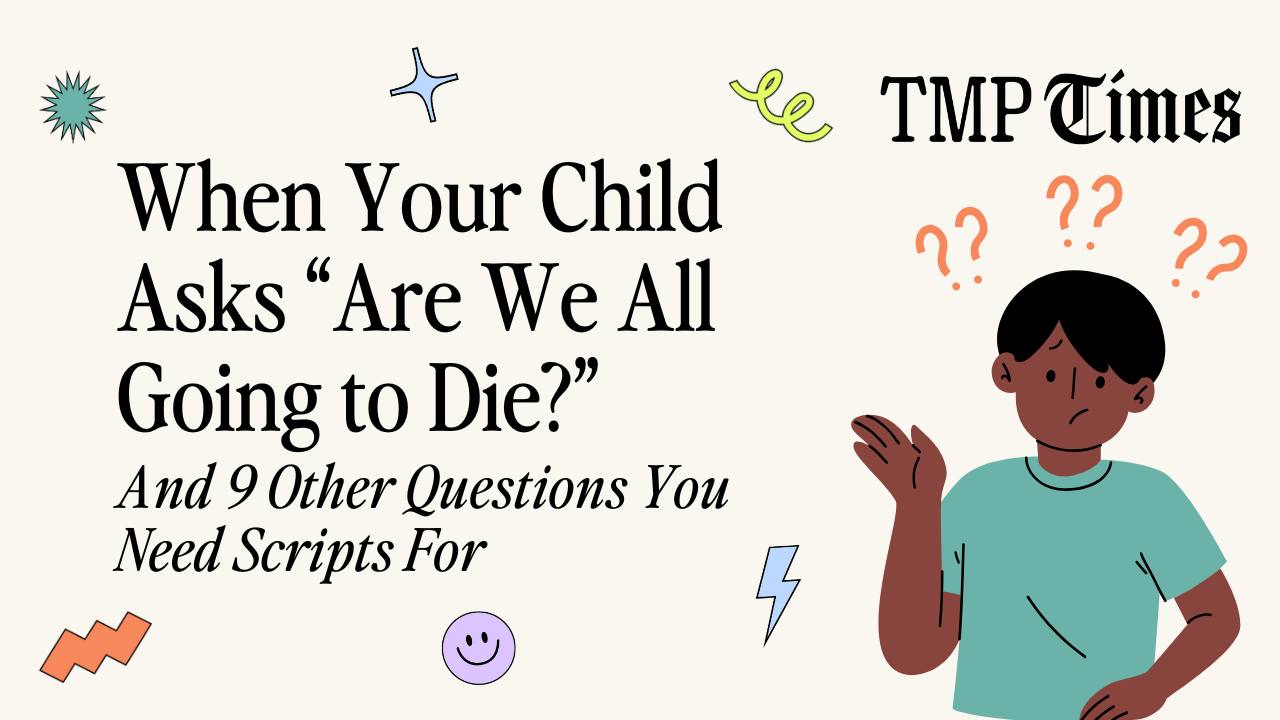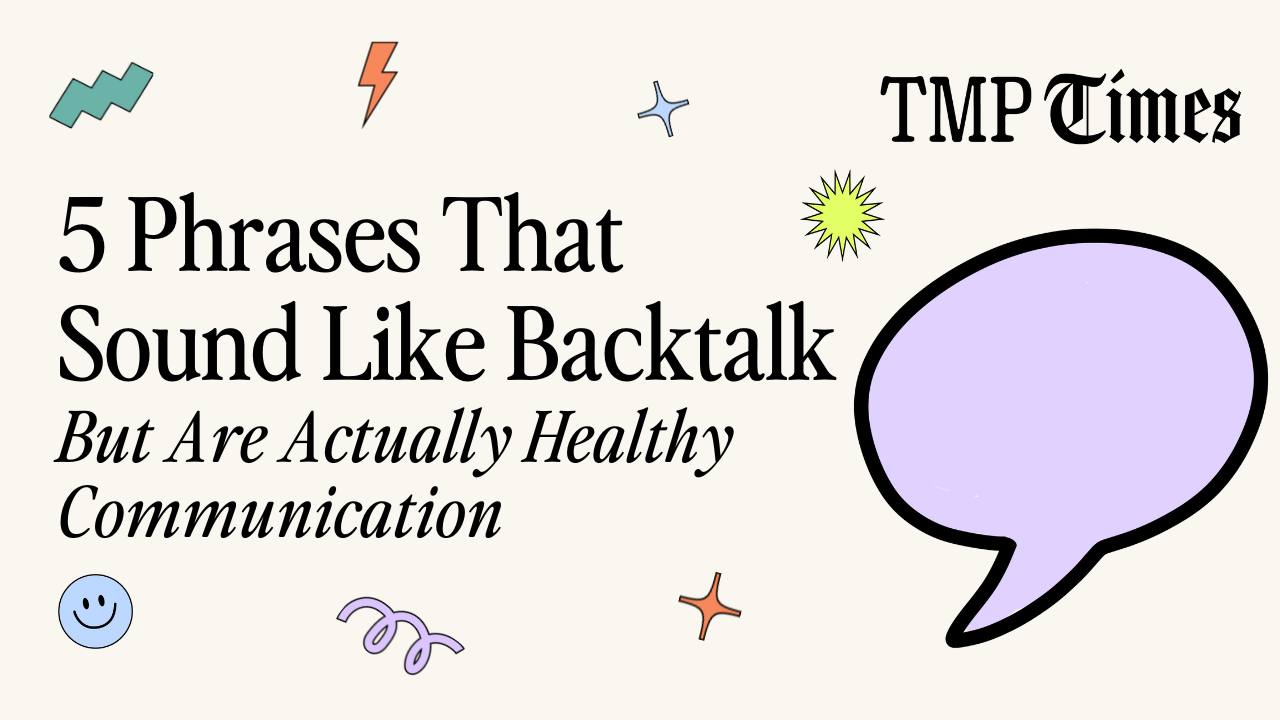Why Taking Away Screens Isn’t Working (And What To Do Instead)


During a recent coaching call inside TMP University, a parent shared something we’ve all felt at some point:
"Every time I say, ‘If you don’t stop, I’m taking away your tablet,’ it only makes things worse. My son just melts down harder or ignores me completely."
Another parent jumped in:
"I told my daughter, ‘That wasn’t nice’ after she pushed her brother. She started sobbing. I wasn’t trying to shame her… I just wanted her to understand!"
That moment struck me.
We all want to teach our kids life lessons. We all want to raise kind, emotionally intelligent kids.
Yet, old habits creep in.
The “stop thats,” the warnings, the conditional love... not because we’re harsh parents, but because we’re human.
We’re stressed. We’re overwhelmed. We just want the negative behavior to stop.
I’ve definitely been there. Where my child tantrums, gets an attitude, or defies me, and my brain immediately goes to “What do I need to take away?”
We immediately go to this place because we’re stressed and feel out of control. This question makes us feel like we’re one phrase away from regaining control of the situation.
But it’s a trap. It only leads to more misbehavior and disconnection.
When I find myself in this place, I try to ask myself, “How can I support my child through this?” versus “How can I show them they’re wrong and I’m right?”
This is a lot easier said than done, so in today’s newsletter I’m going to walk you through exactly how to do this, step-by-step.
After reading this newsletter, you’ll know:
- Why shame makes behavior worse (what they hear you saying in these moments)
- Scripts that build trust while still enforcing your boundaries and rules (because this isn’t about letting our kids walk all over us)
- A real-life example of how to teach communication, hold your boundary, and stay connected (all in one sentence)
- Mistakes parents often make and what to try instead so your children don’t tune you out or escalate their misbehavior
- FAQs, reflection prompts, and a simple mindset shift to take with you this week
- A printable and more
Let’s dive in.

Why Shame Makes Things Worse

When a child is dysregulated (screaming, pushing, melting down), their thinking brain is offline. They’re not processing logic or consequences. They’re processing threat.
Their nervous system says: I’m unsafe.
So when we say:
- "Stop that."
- "You’re not being nice."
- "If you keep this up, no TV."
It registers as disconnection. As "I’m bad. I’m too much. I’m not safe. Mom and Dad are not on my side. It’s me against them."
And instead of de-escalating, they spiral.
From an attachment perspective, perceived safety is paramount to child development and behavior. Our children must feel safe and supported in order to make positive choices.
As parents, we are our child’s lighthouse or North Star in the storm. They look to us for guidance and support on how to navigate intense feelings. If they feel judged, rushed, rejected, or punished for feeling the way they do, it will only add fuel to the fire.

When our children are in meltdown mode, they rely on us to bring them back down to baseline through our presence and unwavering support.
Now, this doesn’t mean we need to be perfectly calm and supportive. It just means we choose our words very carefully and come from a place of, “How do I best support my child through this?” versus, “How do I get them to stop?!”
So what does this sound like in the heat of the moment when our child is losing it (and we’re about to, too)?
Here are some scripts that build trust while still teaching boundaries.

Scripts: What to Say Instead
-
- "It was hard to wait your turn. That’s okay. I’ll help you next time."
- "You felt mad when your brother grabbed the toy. You can say, 'Space, please,' or 'No, thank you.'”
- "I know you wanted that. Let’s figure out what to do next time."
These phrases do three things:
-
✅ Name the emotion
✅ Acknowledge the need or intent
✅ Offer a skill for next time
Gentle Reminder:
Our tone here matters and makes all the difference. You want to sound emotionally grounded and matter-of-fact, not angry and accusatory. To do this, focus on what you see without placing judgment and then transition to problem solving.
Real-Life Example
Imagine your preschooler swats at their sibling for touching their crayons. You instinctively shout, "That’s not how we treat people!"
The child freezes. Eyes wide. Then cries harder or lashes out again.
Now imagine this:
You step in, block the second hit gently with your hand, take a breath, and say, "Looks like you didn’t like that. You can say, 'Please don’t touch that.' "
You just taught communication, held a boundary, and stayed emotionally connected in ten seconds.
As a mom with a toddler, I have to do this all day long. Come close, observe what’s going on, draw a boundary, and then teach my son how to communicate.
I try to remind myself. It’s not enough to point out what they’re doing wrong. We have to take the extra step to guide and teach how to communicate and set boundaries with others. Otherwise, they won’t know how to change their behaviors. All they will register is, "I’m bad and in trouble."

Yes, this takes a lot of repetition and we won’t see the fruits of our efforts right away. But trust me, if you stay consistent and hopeful, your hard work will pay off tenfold. Soon enough, your child will know how to communicate not just with you and their sibling, but with their teachers, coaches, and classmates.




